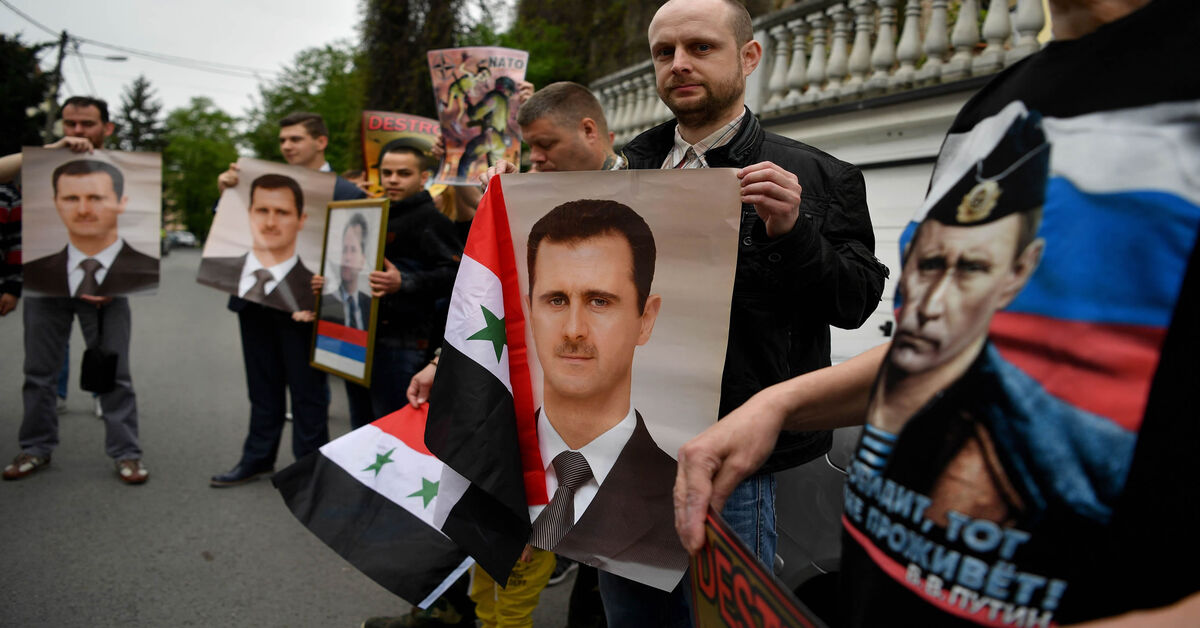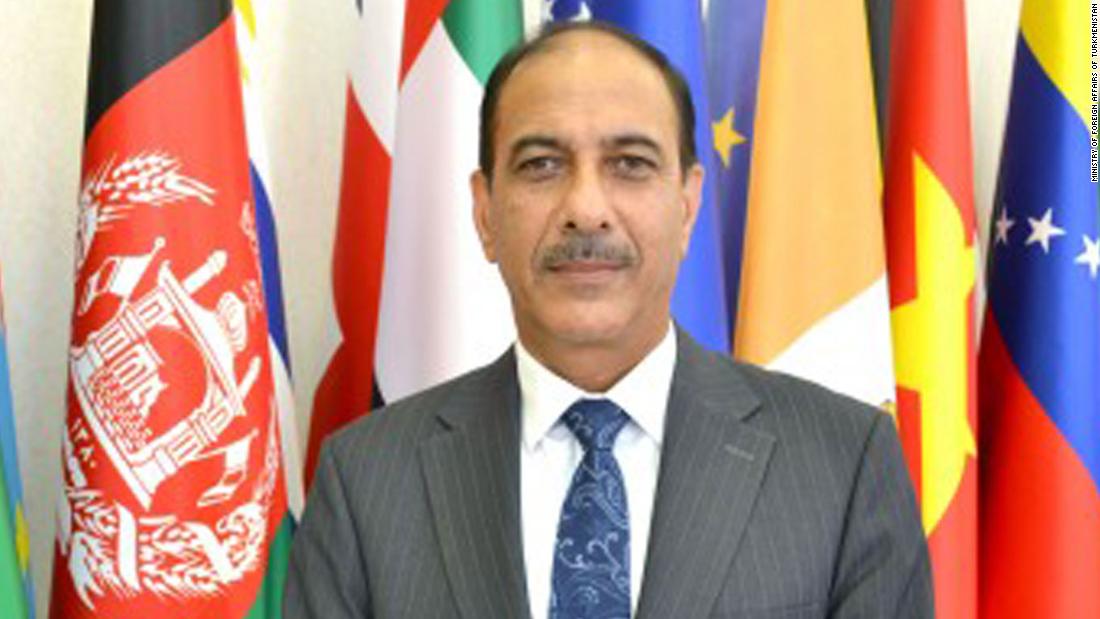Serbia has its reasons for sending ambassador to Syria
 ]
]
Syrian President Bashar al-Assad was sworn in July 17 for his fourth seven-year presidential term after winning more than 95.1% of the votes in democratically dubious elections held May 26. The United States and the European Union do not recognize the outcome of the elections. However, there are those in Europe who do. Among them is Serbia, an EU membership candidate that intends to send an ambassador to Damascus, although the name of the new ambassador has not been disclosed.
The EU reacted to the Serbian move. EU spokesman Peter Stano stated, “The EU’s position regarding the normalization of relations with the regime in Syria is clear and unchanged, and the recent elections organized by the Syrian regime cannot lead to international normalization."
He continued, “It should be taken into account that the Serbian government has repeatedly confirmed that European integration is a strategic priority for the country.”
The logical question is, why is Serbia sending an ambassador to Syria? It has little to do with bilateral ties between Belgrade and Damascus, but instead with a wider context of Serbian foreign policy.
Indeed, what bilateral points can Serbia draw? Contracts for its arms industry? This is dangerous given the risks associated with the Assad regime and the controversies caused by the presence of Balkan weaponry in the Syrian conflict. The old ties from Yugoslav nonalignment remain. In 1967, in solidarity with Egypt and Syria over the Six-Day War, Tito’s Yugoslavia severed relations with Israel. In 2012, with the start of the Syrian war, Serbia had to evacuate its citizens in Syria; they were mostly women who married Syrian nationals during the former Yugoslav era. Yugoslav state companies had a history of doing projects in Syria. However, Yugoslavia and most of its big state firms are gone, and it is dubious how much Serbia, a developing country, can help reconstruct Syria.
The fact that Syria has been a nonrecognizer of independent Kosovo played a part in the fact that Serbia “has never severed diplomatic relations with Syria.” Indeed, according to the Serbian Foreign Ministry, “Until the appointment of our new ambassador to that country, they took place at the level of a temporary charge d’affaires, which was conditioned by the security situation in that country at the time.” During the war, the Serbian Embassy to Syria operated from Lebanon.
However, there is broader geopolitical logic at play. Europe itself remains divided on this issue. There are EU members that are rebuilding ties with Damascus. The Czech Republic was the only EU member with an embassy in Damascus since 2012; the Austrian Embassy operates from Lebanon, while Bulgaria, Greece, Cyprus and Hungary are reopening their embassies. Compared to Serbia, these countries are sending charges d’affaires, a lower level of diplomatic representative that hands in diplomatic credentials to the foreign minister of the receiving country, unlike the ambassador who hands them to the head of state. From the EU standpoint, by sending an ambassador who will hand his credentials to Assad, Serbia legitimizes his regime. So why the Serbian move?
Since 2008, Serbian foreign policy has been shaped by the global financial crisis and the unilateral declaration of Kosovo’s independence. The 2008 financial crisis and subsequent crisis in Europe impeded the ability of the EU to enlarge to the Balkans, and Serbian opposition to Kosovo’s independence forced Serbian diplomacy to distinguish between governments that recognized independent Kosovo and those that did not. Under those circumstances, it became difficult for Serbia to align itself with the EU’s policies, particularly when it involved its main backer on Kosovo — Russia. In the case of Syria, Serbia aligned with those EU declarations that did not impede on Russia’s interests in Syria.
Serbia tried to be careful, though. In 2017, Serbia gave up on sending a military demining team alongside their Russian counterparts to Syria, both due to insufficient capacities and to preserve neutrality on the Syrian conflict and the West-Russia tensions. However, now the situation is different. After a temporary crisis in ties with Russia and Belgrade’s failed bet on the reelection of US President Donald Trump, Belgrade needs to partially re-pivot toward Moscow to get diplomatic protection in the Kosovo dispute. In doing so, Serbia is extending goodwill gestures toward Moscow by embracing its only Middle Eastern ally — Syria.
There is also a factor of Iran — another Assad supporter. In April 2021, Serbian Foreign Minister Nikola Selakovic visited Iran to ensure that Tehran remains a nonrecognizer of Kosovo. Moreover, after Serbia designated the Iranian proxy in Lebanon — Hezbollah — as a terrorist organization in 2020, Belgrade had to compensate Tehran in Syria.
In addition, the security issue motivates Belgrade to have a presence in Damascus. The migration crisis caused by Middle Eastern instability was an unpleasant memory for Serbia as a transit country. The migration crisis also build up on Serbian fears of terrorism as some of its citizens from Bosnian-populated Sandzak region and Albanian-populated Presevo Valley were joining the Islamic State (IS) and other jihadist groups in Syria. The return of jihadist volunteer fighters to the Balkans is a growing concern for nations there. Several Serbian citizens were trapped in refugee camps in Syria after the fall of IS.
Embracing Assad can also be domestically popular for the Serbian government, as there is a tendency to make analogies between pressures exercised by the West against the Assad regime with the Serbian experience of the US military interventions against Serbia in the 1990s. In 2019, the late Patriarch Irinej of the Serbian Orthodox Church met Assad in Damascus.
While the Serbian Embassy move is frustrating for EU officials in Brussels, the episode only speaks of the fact that Serbia cannot alter its foreign policy at this moment — not with the current stalemate in the EU integrations process or the unresolved Kosovo dispute.
Afghanistan withdraws diplomats from Pakistan following alleged kidnapping of ambassador’s daughter
 ]
]
Islamabad (CNN) Afghanistan is withdrawing its diplomats from Pakistan following the alleged abduction of the ambassador’s daughter in the capital Islamabad, according to the Afghan foreign ministry.
Silsila Alikhil, the daughter of Najib Alikhil, Afghanistan’s ambassador to Pakistan, was “abducted for several hours and severely tortured by unknown individuals on her way home” on Friday, according to a statement from the ministry.
She was later released and is now receiving medical care in the hospital, the statement said, adding that the investigation into the incident is still ongoing.
Pakistan’s foreign ministry had appeared to confirm the incident in a statement on Saturday, saying that Silsila had been “assaulted while riding a rented vehicle” and that it was trying to apprehend suspects.
But in an about-turn on Sunday night, Pakistan’s interior minister denied the incident and expressed skepticism toward Silsila’s account of what happened.
Read More
Cecilia Toenjes participates in Aquatennial Ambassador program
 ]
]
×
remaining of
Thank you for reading! On your next view you will be asked to log in to your subscriber account or create an account and subscribepurchase a subscription to continue reading.